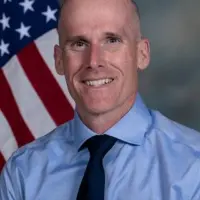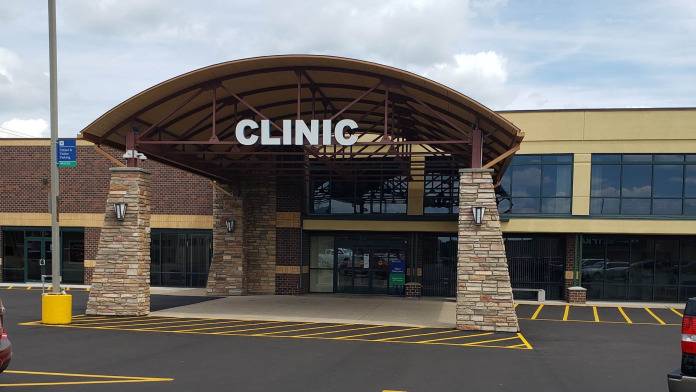I'm so glad that I found a place where I can be myself and not be judged. I'm incredibly thankful for everything these people have done for me!
About Minneapolis VA Health Care System – Rice Lake CBOC
Rice Lake VA Clinic is a community focused integrated care center in Rice Lake, Wisconsin. They offer primary care and various beneficial specialty services. This includes tailored substance use treatment through their mental health department. They also help veterans dealing with dually diagnosed mental and addiction disorders.
The clinic provides much though. This includes nutritional counseling, whole health care and social support services. They also offer women veterans care that takes care of the unique needs of women veterans. This encompasses mental health treatment, military sexual trauma and lifestyle wellness support.
However telehealth is their most compelling offering. They offer both video conferencing and home telehealth support linked to providers in Minneapolis. With telehealth, you can undergo screening or medical checkups and access treatments virtually from home or elsewhere. This can be super helpful when you can’t attend treatment due to serious health issues or other challenges. It breaks the barrier to access, enhances convenience and saves time.
Their outpatient addiction recovery focuses on equipping veterans with practical skills to better manage life challenges that lead to substance misuse. Therapy is delivered in group and individual settings. Emphasis is placed on building strong coping skills to prevent relapse and promote a sober lifestyle.
A thorough evaluation during intake ensures that care is tailored to your unique needs. This may also include medication assisted treatment to help with opioid misuse or alcoholism. This technique uses FDA approved meds to curb physiological cravings and eliminate painful withdrawal symptoms. This is backed up with counseling to ensure whole person care.
Thankfully they offer pharmaceutical services including medication management. This makes it easy to get your med supplies upon prescription. You can refill prescriptions online and by phone or mail.
Their whole health care is a particularly unique service that can help you take charge of your overall wellbeing. Services include wellness coaching, mind body skills group and group coaching. It may also include acupuncture, massage therapy and yoga. It’s worth giving them a call to confirm what’s available in this important program.
Nutritional counseling can help as well. You’ll be taught how to create positive routines through healthy meal planning. You’ll learn how to eat balanced meals that will repair the physical damage caused by substance use. It’s all about restoring your physical health, addressing nutrient deficiencies and building healthy eating habits to support lasting healing.
Their full spectrum of care includes help with affordable housing, job placement and medical care via linkage to linkage to VA community resources. These are the core part of their social work programs. The clinic keeps costs low by accepting Medicaid, Medicare and Tricare. Financial aid may also be available if you’re eligible. It’s also worth noting that they offer same day help and you can access care even if you’re not enrolled in the VA health care.
The city of River Lake is so named after River Lake. This is a picturesque body of water about a mile north of the clinic. The Cedar Side Walking Trail runs along this river. Both are worth exploring for their therapeutic benefits and scenic views. The Veteran Memorial Park is also within five minutes of the clinic and offers the opportunity for reflection.
The Barron County Transit Commission offers a shared ride taxi service within the area. This can help vets local to the area in getting to the clinic. Highway 53 offers direct access to the address for veterans driving from the nearby cities of Cameron, Barron and Eau Claire. They offer free parking and wheelchair accessibility.
Latest Reviews
Rehab Score
Other Forms of Payment
Self-pay involves paying for treatment out of your own pocket. You can use savings or credit, get a personal loan, or receive help from family and friends to fund your treatment. If you don't have insurance or your insurance plan doesn't cover a specific program, self-pay can help ensure you still get the care you need.
Financial aid can take many forms. Centers may have grants or scholarships available to clients who meet eligibility requirements. Programs that receive SAMHSA grants may have financial aid available for those who need treatment as well. Grants and scholarships can help you pai for treatment without having to repay.
Military members, veterans, and eligible dependents have access to specific insurance programs that help them get the care they need. TRICARE and VA insurance can help you access low cost or no cost addiction and mental health treatment. Programs that accept military insurance often have targeted treatment focused on the unique challenges military members, veterans, and their families face.
Private insurance refers to any kind of healthcare coverage that isn't from the state or federal government. This includes individual and family plans offered by an employer or purchased from the Insurance Marketplace. Every plan will have different requirements and out of pocket costs so be sure to get the full details before you start treatment.
Addiction Treatments
Levels of Care
Outpatient Programs (OP) are for those seeking mental rehab or drug rehab, but who also stay at home every night. The main difference between outpatient treatment (OP) and intensive outpatient treatment (IOP) lies in the amount of hours the patient spends at the facility. Most of the time an outpatient program is designed for someone who has completed an inpatient stay and is looking to continue their growth in recovery. Outpatient is not meant to be the starting point, it is commonly referred to as aftercare.
Completing a drug or alcohol rehab program shouldn't spell the end of substance abuse treatment. Aftercare involves making a sustainable plan for recovery, including ongoing support. This can include sober living arrangements like halfway houses, career counseling, and setting a patient up with community programs like Alcoholics Anonymous (AA) or Narcotics Anonymous (NA).
Treatments
Many of those suffering from addiction also suffer from mental or emotional illnesses like schizophrenia, bipolar disorder, depression, or anxiety disorders. Rehab and other substance abuse facilities treating those with a dual diagnosis or co-occurring disorder administer psychiatric treatment to address the person's mental health issue in addition to drug and alcohol rehabilitation.
Mental health rehabs focus on helping individuals recover from mental illnesses like bipolar disorder, clinical depression, anxiety disorders, schizophrenia, and more. Mental health professionals at these facilities are trained to understand and treat mental health issues, both in individual and group settings.
Programs
Adult rehab programs include therapies tailored to each client's specific needs, goals, and recovery progress. They are tailored to the specific challenges adult clients may face, including family and work pressures and commitments. From inpatient and residential treatment to various levels of outpatient services, there are many options available. Some facilities also help adults work through co-occurring conditions, like anxiety, that can accompany addiction.
Recovery is most successful when clients feel accepted and validated by their peers and treatment providers. Facilities that offer LGBTQ-inclusive programming are committed to creating a safe space where everyone can grow and recover without fear of judgment or discrimination. They will have dedicated policies in place to create a safe and supportive environment that fosters free expression.
Serving in the military is both mentally and physically challenging, and can result in trauma that persists even after combat ends. Military programs are tailored to the specific and often complex needs of active duty personnel, veterans, and military families. Clients often access these programs through the U.S. Department of Veterans Affairs (VA).
Young adulthood can be an exciting, yet difficult, time of transition. Individuals in their late teens to mid-20s face unique stressors related to school, jobs, families, and social circles, which can lead to a rise in substance use. Rehab centers with dedicated young adult programs will include activities and amenities that cater to this age group, with an emphasis on specialized counseling, peer socialization, and ongoing aftercare.
Clinical Services
Cognitive Behavioral Therapy (CBT) is a therapy modality that focuses on the relationship between one's thoughts, feelings, and behaviors. It is used to establish and allow for healthy responses to thoughts and feelings (instead of unhealthy responses, like using drugs or alcohol). CBT has been proven effective for recovering addicts of all kinds, and is used to strengthen a patient's own self-awareness and ability to self-regulate. CBT allows individuals to monitor their own emotional state, become more adept at communicating with others, and manage stress without needing to engage in substance abuse.
Whether a marriage or other committed relationship, an intimate partnership is one of the most important aspects of a person's life. Drug and alcohol addiction affects both members of a couple in deep and meaningful ways, as does rehab and recovery. Couples therapy and other couples-focused treatment programs are significant parts of exploring triggers of addiction, as well as learning how to build healthy patterns to support ongoing sobriety.
Experiential therapy is a form of therapy in which clients are encouraged to surface and work through subconscious issues by engaging in real-time experiences. Experiential therapy departs from traditional talk therapy by involving the body, and having clients engage in activities, movements, and physical and emotional expression. This can involve role-play or using props (which can include other people). Experiential therapy can help people process trauma, memories, and emotion quickly, deeply, and in a lasting fashion, leading to substantial and impactful healing.
Research clearly demonstrates that recovery is far more successful and sustainable when loved ones like family members participate in rehab and substance abuse treatment. Genetic factors may be at play when it comes to drug and alcohol addiction, as well as mental health issues. Family dynamics often play a critical role in addiction triggers, and if properly educated, family members can be a strong source of support when it comes to rehabilitation.
Group therapy is any therapeutic work that happens in a group (not one-on-one). There are a number of different group therapy modalities, including support groups, experiential therapy, psycho-education, and more. Group therapy involves treatment as well as processing interaction between group members.
In individual therapy, a patient meets one-on-one with a trained psychologist or counselor. Therapy is a pivotal part of effective substance abuse treatment, as it often covers root causes of addiction, including challenges faced by the patient in their social, family, and work/school life.
Life skills trainings involve all the skills a person must have in order to function successfully in the world. These include time management, career guidance, money management, and effective communication. Truly successful addiction recovery is based on the ability to not only live substance-free, but to thrive. Life skills teaches the practical necessities of functioning in society, which sets clients up for success in life, and therefore sobriety.
Nicotine Replacement Therapy (NRT) is a way of getting nicotine into the bloodstream without smoking. It uses products that supply low doses of nicotine to help people stop smoking. The goal of therapy is to cut down on cravings for nicotine and ease the symptoms of nicotine withdrawal.
Nutrition therapy, aka medical nutrition therapy (MNT), is a way of treating physical, emotional, and medical conditions through diet. Specific dietary plans are designed by professional nutritionists or registered dietitians, and patients follow them in order to positively affect their physical and mental health.
Trauma therapy addresses traumatic incidents from a client's past that are likely affecting their present-day experience. Trauma is often one of the primary triggers and potential causes of addiction, and can stem from child sexual abuse, domestic violence, having a parent with a mental illness, losing one or both parents at a young age, teenage or adult sexual assault, or any number of other factors. The purpose of trauma therapy is to allow a patient to process trauma and move through and past it, with the help of trained and compassionate mental health professionals.
Amenities
-
Private Setting
Staff & Accreditations
Staff

Patrick J. Kelly, FACHE
Director

Michael T. Armstrong, MD
Chief of Staff

Teresa Tungseth, DNP, RN, NEA-BC
Associate Director for Patient Care Services & Nurse Executive

Sue Ricker, LICSW, FACHE
Acting Associate Director

Amy Archer, MSW, LICSW
Associate Director & Chief Experience Officer
Accreditations

The Joint Commission, formerly known as JCAHO, is a nonprofit organization that accredits rehab organizations and programs. Founded in 1951, the Joint Commision's mission is to improve the quality of patient care and demonstrating the quality of patient care.
Joint Commission Accreditation: Yes
Accreditation Number: 4739
Contact Information
2700A College Drive
Rice Lake, WI 54868
